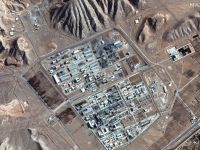Israeli Prime Minister Ehud Barak geared up Thursday for intense political bargaining to rebuild his crippled coalition government, whose make-up will be vital in determining the future of peacemaking with the Palestinians.
Barak, who returned home from the Camp David summit on Wednesday without a peace agreement with the Palestinians, faces a series of parliamentary bills in the next few days that could bring down the government after only one year in power.
"As of this morning, Barak begins his war of survival," the top-selling Yediot Aharanot wrote in a front-page article on Barak's political woes headlined "A leader on probation."
The prime minister is due to meet later Thursday with right-wing Likud opposition leader Ariel Sharon, who is leading a push for early elections in protest at Barak's peace policies.
But both Barak's own aides and Sharon himself have ruled out the creation of a national unity government, with the only other possibility being the return of the parties who led to the coalition's collapse earlier this month.
Only two days after the collapse of the peace summit over the emotive issue of Jerusalem, Israeli and Palestinians announced Thursday that negotiators would meet on Sunday, although the subject of their talks is not known.
Communications Minister Binyamin Ben Eliezer, who is a close confidant of Barak, said it would be preferable to continue with the current government if the negotiations got underway again.
"Only if it becomes clear that there is no chance of renewing negotiations, should a unity government be formed," he told army radio.
Yediot said the key to the government's fate was in the hands of Ovadia Yosef, the powerful spiritual leader of the ultra-Orthodox Jewish Shas party, which led the mass defection on the eve of the Camp David summit in protest at the talks.
Shas, which has 17 MPs in the 120-member parliament, has played a pivotal role in Israeli coalition governments and since Barak took office in July last year it frequently threatened to bolt.
Parliament's three-month recess starts August 6th, but as early as next Monday, July 31st, the Knesset will vote on two no-confidence motions against the prime minister -- the same day as it elects a new president.
One of the motions comes from Sharon, who accuses Barak of jeopardizing national interests, the status of Jerusalem in particular, at Camp David, the other from the United Arab List which contends that Barak ignored Palestinian rights in his diplomatic efforts in the United States.
An opinion poll published the day after the summit breakdown found that a majority of Israelis believed Barak had been ready to yield too much to the Palestinians.
Barak also risks a potential slap in the face in the secret ballot in the Knesset to replace disgraced former head of state Ezer Weizman who quit this month over a cash gifts scandal.
He is backing former prime minister and Nobel laureate Shimon Peres for the job, a largely ceremonial post in a country where most of the power is invested in the prime minister, against Moshe Katsav of Likud - OCCUPIED JERUSALEM (AFP)
© 2000 Al Bawaba (www.albawaba.com)







